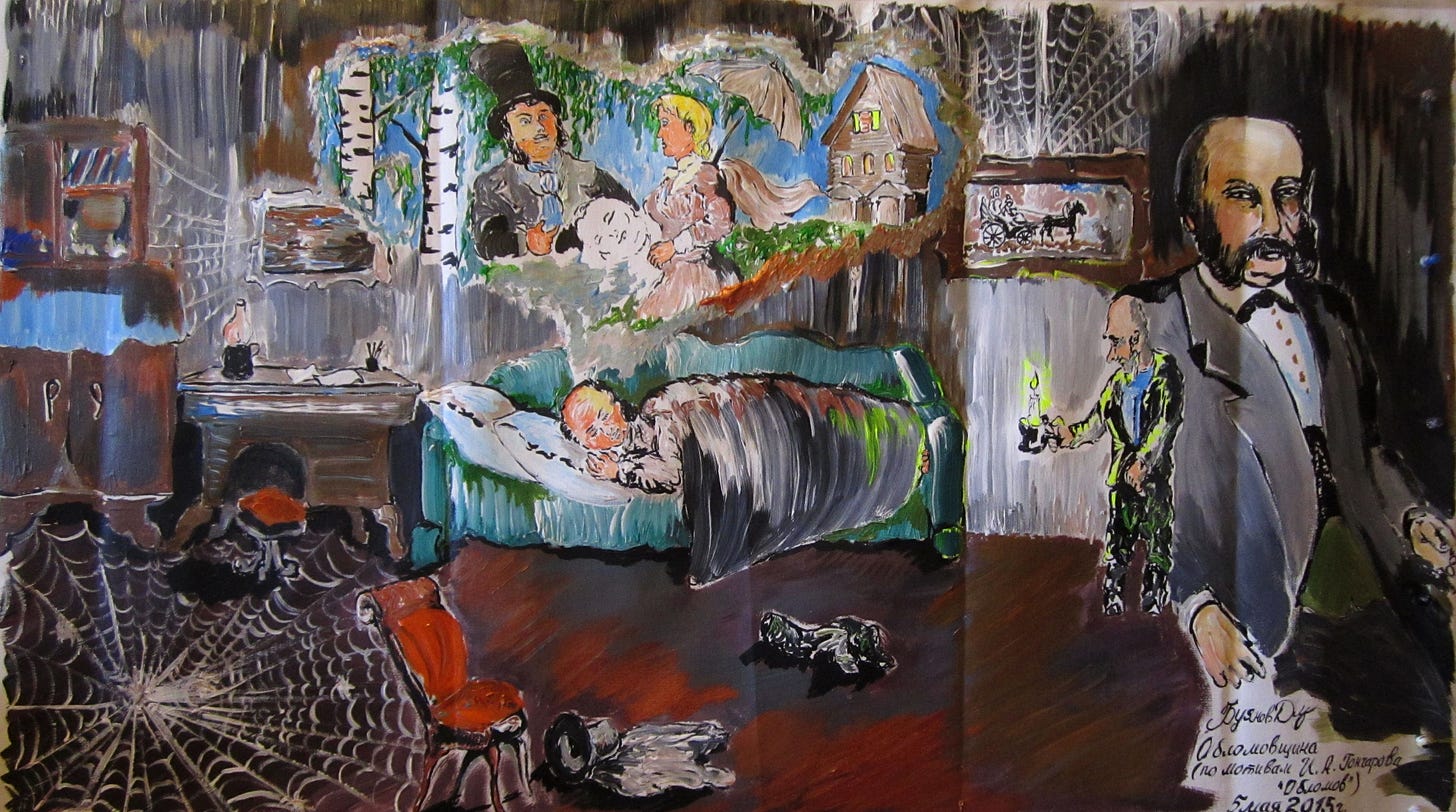Oblomov by Ivan Goncharov
The charming tale of an obstinate man who simply hates getting out of bed
For some, mustering up the energy to get out of bed is the day’s toughest battle. Relinquishing yourself from the soft, warm, oh-so-comfortable sheets and entering into the cold, austere world of reality. Emerging from your hazy dream you’re greeted with a reminder of the bills, stresses, and obligations that encompass your day-…


